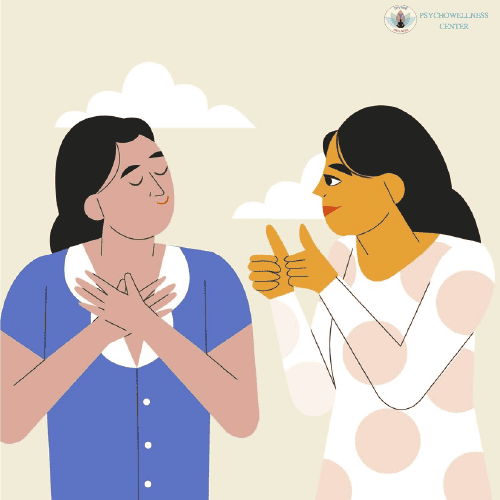What is Alexithymia and Tips to Cope With Alexithymia

“Alexithymia is described” as a condition which is related relating to a difficulty in the experience, identification, and expressing emotions emotional expression. A person with alexithymia has problems feeling emotions. It is not a well known condition but best psychologist in India says that around 1 in 10 people have it. People with alexithymia describe themselves as having difficulty with expressing emotions that are socially acceptable or having trouble with identifying their emotions altogether. Because of difficulty in expressing emotions alexithymia impacts interpersonal relationships of people.
Alexithymia is not a clinical diagnosis therefore it is not recognized as a mental disorder in the fifth edition of the Diagnostic and Statistical Manual of Mental disorders (DSM 5). It is generally seen to occur as a comorbidity with other severe conditions. Alexithymia has strong links with the Autism spectrum disorder. A recent study shows that 50% of the people with autism show symptoms of alexithymia. Alexithymia has comorbidity with mental health conditions like Post Traumatic Stress Disorder (PTSD), depression, Attention-deficit Hyperactive Disorder (ADHD), eating disorders, schizophrenia and other neurodegenerative disorders like alzheimers, epilepsy, parkinson’s disease, traumatic brain injury and so on.
The exact causes of alexithymia are still unknown to scientists and researchers. Twin studies show that alexithymia is mostly caused by genetics. People are more likely to have alexithymia if some family member has it. Environmental factors also greatly impact alexithymia. History of childhood trauma, physical or emotional abuse, socioeconomic factors are also said to cause the prevalence of alexithymia. Research also indicates that people who have suffered from brain injury show signs of this condition. Specific injury to the brain’s insula which is responsible for social skills, empathy and emotion also results in alexithymia. Some risk factors of alexithymia are that it occurs almost twice as often in males than in females. Age is another risk factor of alexithymia as any other neurodegenerative disorder. Low emotional intelligence as well as low socioeconomic status are factors that affect alexithymia.
Since this condition often makes people seem out of touch or apathetic, it can be difficult to recognize the signs and symptoms of Alexithymia. To begin with, a person finds it difficult to communicate their feelings to others. They face problems distinguishing between emotions and bodily sensations that one usually feels during that emotion. They lack imagination and have poor social skills. Coping with stress can be extremely tiring. They are often dissatisfied with life and seem rigid, rude, distant and often humorless. In social contexts, a person with alexithymia might experience anger, confusion, discomfort, panic and emptiness all at once.
Alexithymia is not just a mental health disorder hence diagnosis cannot be done directly. MRIs are conducted to obtain images which can be checked to see if there is any damage to the insula of the brain. Professionals sometimes use questionnaires and scales to check the signs of alexithymia. These include
1) Twenty-item Toronto Alexithymia Scale (TAS-20) which assesses the ability to identify feelings and ability to communicate these feelings to people.
2) The Bermond–Vorst Alexithymia Questionnaire (BVAQ) of 40 items which consists of 5 subscales - emotionalizing, fantasizing, identifying, analyzing, verbalizing.
3) The Observer Alexithymia Scale (OAS) having 33 items that follow the five-factor structure - distant, uninsightful, somatizing, humorless, rigid. Because there is no one proper scale to check for alexithymia, diagnosis can take time.
Treatment of Alexithymia:
While a lot of research is still being conducted on this topic, it is impossible to pinpoint one suitable treatment for alexithymia. Therapies like Talk therapy, Cognitive behavioral therapy (CBT), group therapy, etc. seem to be helpful. Since it is a comorbid condition for autism, depression, PTSD, etc. treatment and therapy methods that are used to treat these disorders can be used to mitigate further signs and symptoms of alexithymia. Keeping in mind a few coping tips can help in the long run. It is necessary to be mindful of one's own psychological response to situations. Monitor your heart rate in different social settings, notice in which settings your heart rate increases, wearing a fitness watch or a smart-watch is beneficial. With practice and help from therapists, one will start identifying and distinguishing emotions like anger from excitement and so on.
Alexithymia can be profusely frustrating to individuals and the people they interact with and can cause serious interpersonal as well as intrapersonal issues. If diagnosed with mental disorders like autism, depression, PTSD, etc., it is essential to check for symptoms of alexithymia so that one can avoid worsening symptoms and complications.
Tips to cope with Alexithymia:
-
Being mindful of your physiological responses example is to begin with your own heart rate.
-
Exploring why a reaction is happening to you.
-
Keep in mind that negative and positive emotions are a part of life and both are important for us.
-
Enter group therapy programmes, which will allow you to observe how others discuss their feelings, according to Moore.
-
Consider your personal views about emotion and what you believe will happen if you express them.
Read more:
How Punishment Impacts Psychology
what Is Medical Detox And What To Expect From Medical Detox
Dysthymia: Symptoms, Causes, Diagnosis And Treatment




SHARE